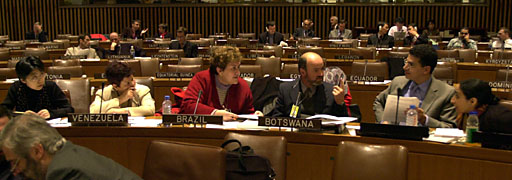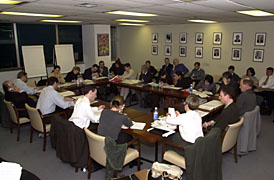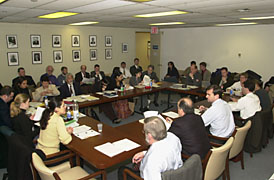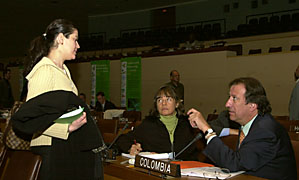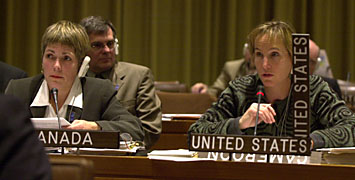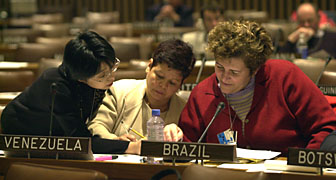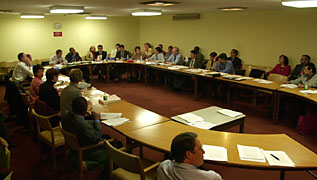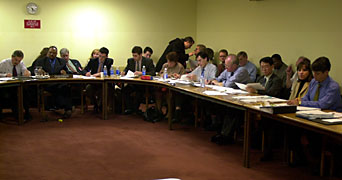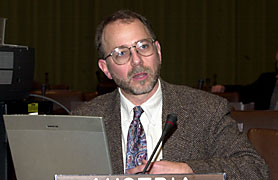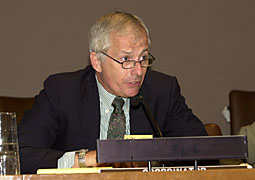 |
UNFF-2:
Second
Session of the United Nations Forum on Forests
UN Headquarters || 4-15 March 2002 |
|
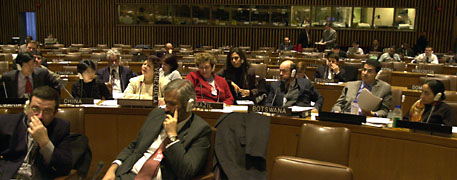 |
Brazil, India and Argentina, sat together during the afternoon's discussion on the expert groups.
|
|
|
Side event: Briefing on the GEF Forest Roundtable
On Monday, 11 March, the Global Environment Fund sponsored a high-level roundtable on forests to explore key contemporary and emerging issues that could improve conservation efforts and the sustainable use of forests. Specific topics included timber certification, threats from invasive species, ecosystem services and the role of forests as carbon sinks. Andy White, Director of Policy and Market Research at Forest Trends, began the side-event summarizing the roundtable's main discussion paper, "To Johannesburg and Beyond: Strategic Options to Advance the Conservation of Natural Forests" (document available on this GEF web page). On lessons learned since Rio, the paper noted the limited effect of global agreements on the conservation of forests, and said there was widespread disenfranchisement and weariness of global processes. He stated that conservation has not been a priority, in either the North, or the South. On the difficulty to increase commitment, he said that: in many cases governments' authority exceeds its capacity, both in terms of resources and regulatory reach; that sustainable forestry is more expensive than the alternatives; and that financing for public goods has not materialized. On what has changed since Rio, White highlighted the spread of invasive species and climate change as emerging issues requiring a multi-sectoral approach. He noted increased community control of forests, and that the local level is now a major player that needs to be engaged. He said that plantations could ease pressure on natural forests, but can also decrease their value. He noted the emergence of globalization, increased demand for environmental services, governance and certification as emerging issues in today's global forest policy debate. Looking towards the future, the discussion paper highlighted government policy and the private sector as being far more important players than ODA and philanthropy could ever be, and discussed the need for ODA to focus on leveraging private capital flows and transforming it into an agent for conservation. White went on to discuss various ways in which ODA might achieve this, for example by addressing governance issues, reforming policies to provide incentives for SFM, promote community enterprise and joint ventures, and establish international payment mechanisms for environmental services. In conclusion, he said that strategies must become more integrated as the social, environmental and economic agendas converge.
Jeff Sayer, Senior
Associate at WWF and Chair of the roundtable, noted the 18 panelists
and over 25 representatives from NGOs and delegations who took part
in the all-day discussions. He presented the Chair's summary of the
discussion.
For more informtaion: |
